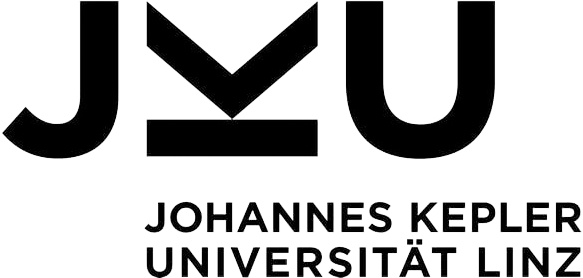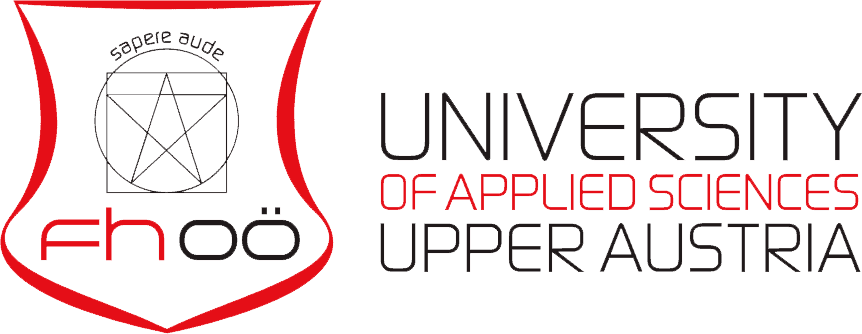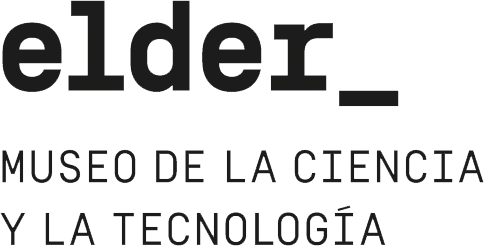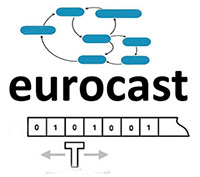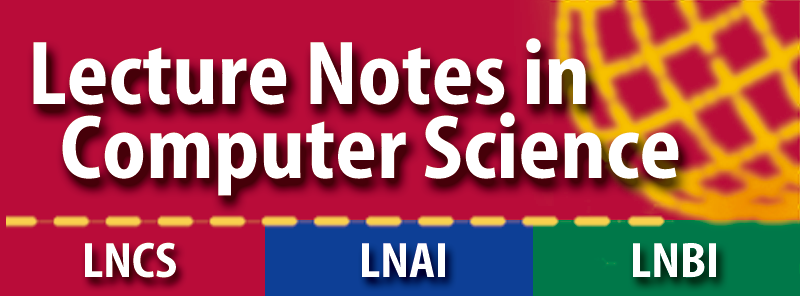Eurocast 2024
19th International Conference on Computer Aided Systems Theory
February 25- March 1, 2024
Museo Elder de la Ciencia y la Tecnología, Las Palmas de Gran Canaria, Spain
Supporter Institutions
News
News
Preliminary Workshops and Chairpersons
Workshops, Chairs and Committees
The central interest is in the presentation of new results in Systems Theory and Model Based Simulation using mathematical or logical methods for model building, model representation, model decomposition and model technology mapping. This includes method based systems in the sense of CAST tools which support designers in theoretical issues. Also successful general applications of systems-theoretical methods in different areas of science and engineering are welcomed.
Finally, the workshop deals with the various aspects of the life and work of world important pioneers in the field of Information and Communication Technologies, as well as the landmarks in the historical development of infrastructures of these technologies in different countries. Predictions by Science Fiction masters are welcome. The main goal is to interest all scientists and engineers (specially the younger generations) in the history of their field.
This Workshop is devoted to explore heuristic methods and their successful applications and potentialities in solving real complex problems. Suggested topics include, but are not restricted to: New algorithmic developments; Theory and application of Genetic Algorithms and Genetic Programming; Other heuristics (Simulated Annealing, Tabu Search, Ant Colony Optimization, Particle Swarm Optimization, Scatter Search, etc.); New generic Hybrids; Parallel Heuristics; Applications in Combinatorial Optimization and Applications in Bio and Medical Informatics.
This workshop focuses on various fields of application driven mechatronic product development. The underlying technical systems may possess a maturity at Technology Readiness Levels (TRL) between 5 and 8, meaning neither actual systems in their operational environment nor concept or lab phase systems are in the scope of the latter.
The workshop incorporates a special focus on autonomous systems of any kind, while the authors may not entirely be limited to this field, as long as their research covers the essential targets of the workshop.
The presented research material may be within the fields of industrial prototyping, requirements engineering and the demonstration of development processes - all within the scope of TRL 5-8. The workshop is open to contributions from both the product (what to produce) and the production side (how to produce). Also, both concrete technical solutions (e.g., technologies, materials) and business administrative aspects (e.g., processes, USP definition and protection as part of the development phase) may be covered. As well, merging both field (e.g., security as part of the development process) is a valid approach of investigation.
Exemplarily, some potential topics are listed:
- Technologies to enhance the production process (e.g., virtual reality).
- Automation of production (sensors, feedback to production process).
- Transition of current production processes towards I4.0 applicability.
- Technological solutions (e.g. IIoT devices for process validation, predictive maintenance, industrial connectivity).
- Transition to the next level: human-centred production (e.g., augmented reality).
- Resilience of next generation production sites.
- Sustainability in development processes.
- Product development modeling.
- Digital Twin.
- Human-Machine-Interfacing.
- Remote production control.
- Tools for efficient requirements engineering.
- Rapid prototyping strategy and implementation.
- Intellectual property development.
The workshop concentrates on the role of simulation and formal analysis and verification tools in the design of reliable systems. Topics include embedded systems design, distributed and reactive systems design, reality-in-the-loop simulation, modelling formalisms and languages, model transformations, formal analysis and verification methods, model continuity, design methodologies, supporting tools, etc.
Signal processing (SP) is an enabling but mostly hidden technology for many of today’s electronic products and in industry applications. The successful deployment of signal processing algorithms typically incorporates mathematical system modeling, computer simulation, algorithm selection and testing, as well as implementation aspects. The workshop aims at bringing together scientists of different fields of applications who deploy signal processing technology and algorithms such as optimized digital filters, adaptive filters, statistical signal processing, or estimation and detection methods, in their respective areas. It shall facilitate the interexchange of SP experience across different research areas so as to inspire new ideas in the participants’ fields of research.
The concept of ‘Smart Mobility’ lies at the core of the so-called the ‘Smart City’ paradigm, which has hitherto been understood as a fusion of Information and Communication Technologies (ICT) with Transportation. However, such a definition is only a simplistic view of what ‘Smart Mobility’ should really be. In this workshop we will extend this envisioned fusion of technologies beyond applications to traffic modeling and management, so as to span further towards transportation electrification, human factors and autonomous driving, with an emphasis on human centered and holistic approaches. To this end we will work to grasp the interest and collect contributions from reputed scientists and colleagues investigating on techniques, tools and problems related to the main topic of the workshop: the cornerstone where algorithms and models from the broad fields of Artificial Intelligence, (Big) Data Mining and Knowledge Discovery meet together to efficiently address problems stemming in all areas of Intelligent Transportation Systems and Smart Mobility.
Main Topics:
- Virtual and Augmented Reality in Medical Teaching and in Surgery Training.
- Intelligent Systems as Diagnostics Assistants.
- Medical care specific soft and hardware.
- Remote diagnosis and monitoring systems.
- Formal and Computer Models of Patient- Prescriptions Interaction.
In the age of IoT and Industry 4.0 industrial robots and automation systems are affected by the dynamically increasing influence of software. The increasing implementation of software in industrial robots and other production systems offer new possibilities like human-robot-cooperation, high flexibility of production processes and reduction of lot size down to one for mass customization. The higher complexity and multidisciplinarity requires new methods for modelling and new tools for engineering of those systems. Therefore new approaches like deep learning and artificial intelligence have to be implemented to reduce complexity for the developer and to realize self-optimizing systems. The digitalization in the production offers possibilities for a deeper understanding and controlling of production processes and leads to higher quality and higher flexibility due to paralleling planning, programming and production processes during construction, start-up and running of production systems. The workshop should give the possibility to present new concepts, research results and best-case-studies of these topics. The exchange of experience of how to do innovation in the field of IoT and automation is the basis for new approaches in the fast changing and multidisciplinary field Industry 4.0.
This workshop will gather system thinkers and professionals from science, technology, and management. Our main issue will be the role of systems thinking in today's socio-technical systems, especially organizations of any kind.
The potential of systems thinking in science, technology, and management is huge. It promises a large step ahead in coping with future challenges.
In our day, the importance of the systems approach for design and management is widely endorsed. Applications range from industrial and service firms to international organizations, world models, and systems engineering projects (e.g., Information Technology, aerospace, energy, health organizations, resource management, sustainability, and climate research).
The participants in this workshop will report on real-world applications of systems thinking. This might involve case studies and inquiries involving larger sample samples, etc. The methodological focus could be based on a certain method(ology) or a multimethodology.
We envision a variety of contributions to coping with the complex issues of our time.
This workshop focuses on recent developments in data science for solving questions in medicine and biology. While medical informatics relates to methods for acquiring and processing patient data, bioinformatics is dedicated to the development of methods for understanding biological data. In both medical informatics and bioinformatics, data science methods play an essential role: data must be preprocessed, visualized, and analyzed using statistics and machine learning.
Papers can be from the fields of clinical applications, biological research, and further development of data science and engineering methods for analyzing medical or biological data. Concrete technical solutions (e.g., methods, technologies, materials) and research results in medicine or biology (based on data science methods) are also welcome.
Typical topics are,
- Medical Informatics: Medical image processing, medical modeling and simulation, medical data analysis and prediction, and analysis of clinical processes.
- Bioinformatics: Computational evolutionary biology, comparative genomics, analysis of sequencing data, computational proteomics.
- Data Science: Machine learning, applied statistics, computer vision.
- Data Engineering: Big data analysis, cloud computing, data preprocessing, data quality.
Production and logistics processes in manufacturing companies form highly complex, multi-stage, and dynamic systems today. Due to a large number of constraints and influencing factors, the optimal control of these systems requires a high degree of expertise, and the effects of individual decisions on the entirety of the system are almost impossible to oversee for the respective decision-makers. However, the increasing degree of digitization in such systems paves the way for the use of software systems to support and automate planning and control tasks.
The combination of modeling, simulation, and optimization forms the basis for such systems, which contain digital representations of complex real-world production and logistics systems and enable to evaluate of different scenarios in an interplay of simulation and optimization to make the best possible decisions at the operational, tactical, and strategic level. Particular challenges here include uncertainties in the underlying data, dynamic changes in parameters and objective functions, a large number of decision variables and thus huge solution spaces, as well as a wide variety of constraints, which make the theoretical development and practical implementation of digital planning and control systems a very active field of research.
This workshop aims to bring together researchers from the production/logistics and ICT domain to present the latest research results, exchange ideas, and discuss upcoming challenges in modeling, simulation and optimization of complex production and logistics systems.
Suggested topics for papers include but are not limited to:
Modeling of Production and Logistics Processes; Production Networks and Supply Chains; Digital Twins and Digital Shadows; Simulation Models and Methodologies; Data Analytics and Machine Learning; Simulation, Visualization, Verification; Resource Planning and Optimization; Exact and Heuristic Optimization; Dynamic Optimization; Hybrid Methods; Real-World Applications.
This workshop aims to bring together researchers, practitioners, and industry experts to discuss the use of AI and SW-Tools in promoting sustainability in energy and materials consumption. With the increasing demand for sustainable solutions, this workshop provides a platform for sharing innovative ideas, methodologies, and tools that utilize computer-aided systems theory to address sustainability challenges. The workshop invites submissions on topics related to the application of AI and SW-Tools in sustainable energy and materials consumption, including (not limited) to energy-efficient systems, renewable energy, circular economy, life cycle assessment, and sustainable manufacturing.
Stochastic models enrich the scenario of mathematical models with many other possibilities for describing, in detail, the dynamics of complex and interacting physical systems. Usually, the degree of reliability of such models is a consequence of the probability laws of such stochastic models. The convenience of studying new systems and conditions motivates the construction of new stochastic processes to produce new models. Often, applications of statistical tests on such models are of fundamental importance for the robustness of the models themselves. Statistical investigation is also one of the main chapters regarding the identification of suitable models, the extraction of information from large samples of data, and the comprehension of given phenomena.
Simulation strategies are extremely useful for investigating new conditions, validating theoretical results, and exploring situations not contemplated by other mathematical models.
This workshop discusses such types of stochastic models, statistical methods, and simulation techniques, oriented to provide refined descriptions and reliable predictions. Applications include biology, neuronal dynamics, medicine, genetics, population dynamics, epidemics, weather forecasting, finances, and industrial processes.
New stochastic models based on the use of special mathematical tools, such as fractional calculus operators are an objective. The workshop focuses on specific mathematical and statistical advances in the highlighted directions.
This workshop aims to provide a forum to discuss research results on issues related to cybersecurity, and in particular, on the design, implementation, and analysis of both theoretical proposals for the future and practical applications for the present. In many sectors, such as intelligent transport or e-voting, there is a big gap in the development of solutions, due to the lack of cybersecurity as a fundamental factor for the protection of infrastructures. This workshop will discuss efficient and resilient technologies to improve privacy and cybersecurity in these and other sectors. Submissions of original research, case studies, and practical applications to foster collaboration and knowledge-sharing within this dynamic field, advancing the boundaries of cybersecurity enhanced with quantum or AI technologies., are welcome.
Program Committee
M. Affenzeller (Univ. Applied Sciences, Upper Austria AT) (Chairman)
F. Pichler (JKU, Linz, AT)
R. Moreno-Díaz (Univ. of Las Palmas de G.C. ES)
A. Quesada-Arencibia (Univ. of Las Palmas de G.C. ES)
S. Wagner (Univ. of Applied Sciences, Upper Austria AT)
G. Raidl (Technical Univ.Vienna AT)
M. Jungwirth (Univ. Of Applied Sciences, Wels, AT)
T. Schlechter (Univ. of Applied Sciences, Wels, AT)
J. Nikodem (Wroclaw Technical Univ. PL)
A. lto (University of Chuo, JP)
M. Nikodem (Univ. of Science and Technology, PL)
B. Zagar (Montanuniversity Leoben, AT)
M. Lunglmayr (JKU Linz, AT)
J. Sanchez-Medina (Univ. of Las Palmas de G.C. ES)
J. del Ser (Univ of Bilbao, ES)
H. Berk Celikoglu (Istanbul Technical University,TR)
R. Rossetti,(Univ of Lisboa, PT)
L. Acosta (Univ of La Laguna, ES)
J. Rozenblit (Univ. of Arizona, Tucson, AZ US)
M. Maynar (Univ. of Las Palmas de G.C. ES)
R. Klempous (Wroclaw Technical Univ. PL)
L. Kovacs (Univ. of Obuda, Budapest, HU)
D. Jacob ( Univ. Applied Sciences Kempten, DE)
R. Stetter (Munich DE)
E. Markl (Univ. Applied Sciences Vienna, AT)
M. Schwaninger ( Univ. of St Gallen ,CH)
S. Groesser.(Univ. of Applied Sciences Bern, CH)
M. Giretzlehner (RISC Software, Hagenberg, AT)
M. Geiß (Software Competence Center Hagenberg, AT)
S. Winkler (FH OÖ, Hagenberg, AT)
F. Longo, (University of Calabria, I)
A. Padovano, (University of Calabria, I)
E. Pirozzi, (Univ. di Napoli "Federico II" ,I)
V. Giorno, (Univ. di Salerno ,I)
P. Caballero, (Univ of La Laguna, ES)
Program Committee Publications Chairs
R. Moreno Díaz (Las Palmas de Gran Canaria)
F. Pichler (Linz)
M. Affenzeller (Hagenberg)
A. Quesada-Arencibia (Las Palmas de Gran Canaria)
2024 Conference Chairs
Founder and Honorary: F. Pichler (Linz)
General: R. Moreno Díaz (Las Palmas de G.C.)
Program: M. Affenzeller (Hagenberg)
Logistics: A. Quesada-Arencibia (Las Palmas de G.C.)
Contact eurocast@iuctc.ulpgc.es
Extended Abstracts and Deadlines
Participation & Extended Abstract Submission
An extended two pages abstract, (including references in English) in the Abstract Submission Form below, must be sent no later than November 15, 2023.
For the extended abstract, you must follow the instructions in https://www.springer.com/gp/computer-science/lncs/conference-proceedings-guidelines
Authors will be notified of acceptance by December 15, 2023. Accepted Extended Abstracts will be published in a pre-Conference volume with ISBN. It is intended that the final selected full papers will be published in line with prior Eurocast meetings (Springer Lecture Notes in Computer Sciences No. 410, No. 585, No. 763, No. 1030, No. 1333, No. 1798, No. 2178, No. 2809, No. 3643, No. 4739, No. 5717, No. 6927, Nos. 6927-6928, Nos. 8111-8112,No. 9520, Nos. 1067 -10672, Nos. 12013-12014 and No.13789 ).
Payment of the Inscription fee is a requisite for the presentation of a paper at the Conference (one fee per paper). Only the papers personally presented and discussed at the Conference will be eligible for the post-Conference Volume.
Inscription Fee and Payment
Payment of the Inscription fee is a requisite for the presentation of a paper at the Conference (one fee per paper). Only the papers personally presented and discussed at the Conference are eligible for Springer's LNCS post-Conference Volume.
Conference Inscription Fee: € 500.00 (Money transfer and online payment).
Inscription hereAdditional Information
The Conference will take place at the Museo Elder de la Ciencia y la Tecnonogía, in the centric Parque Santa Catalina (close to Las Canteras Beach), Las Palmas de Gran Canaria, which offers an appropriate scientific and technical environment. All Office, Information and Communications facilities and standard presentation facilities from PCs (projection and sound) are available in all Conference Rooms. Any additional technical requirements must be made to eurocast@iuctc.ulpgc.es
February is high season in Las Palmas, so please contact your travel agency as soon as possible to obtain good-priced airfares. Gran Canaria has a subtropical mild oceanic climate. The Atlantic is suitable here for swimming most of the year. Observe that there are weekly flights from many cities to Las Palmas (Gran Canaria) Airport in a low price range. Please ask your local travel agency. Make sure to book your hotel for the city of Las Palmas de Gran Canaria, since there are many other resorts not close to the Conference site. Hotels in the area of Las Canteras Beach are usually the best offer.
For local help in traveling or lodging, you may contact Viajes InsularTravel (Mrs. Ana), at empresas@viajesinsular.es
